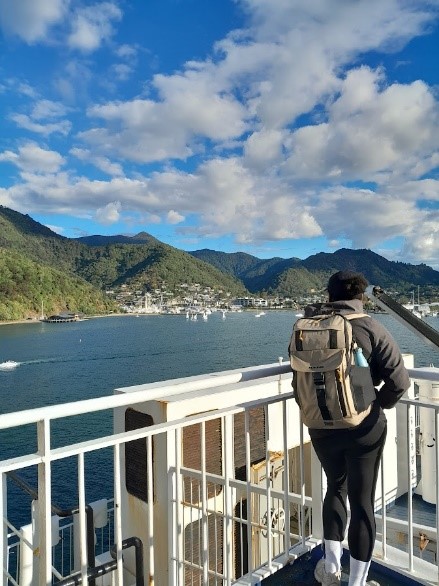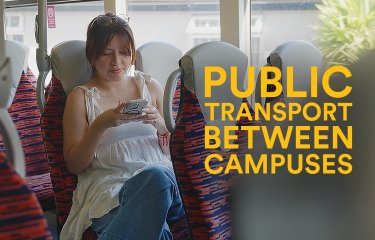From flights to flip-flops: Arranging your semester abroad
24 May 2024

This article was written by second-year BA(Hons) Journalism & Creative Writing student Danielle, who is currently studying abroad for a semester at Auckland University of Technology, New Zealand. She enjoys photography and can often be found exploring new places looking for a good angle.
In my last post, I discussed the initial stages of applying to study abroad, including knowing your aims and how to decide if an exchange is the right decision for you. This blog focuses on the nitty gritty of arranging the logistics of the exchange – such as transport, timetables and academic support - to ensure that your initial transition goes smoothly.
At this stage, you’ve been accepted into your partner university (congratulations!) From here on in, a lot of the correspondence will shift to the university abroad. You will be asked to register on their online systems, choose your modules and settle your timetable. Whilst these emails can seem like a lot of admin, these are some of the first conversations you will have with your new university and this provides a great opportunity to get in touch with their support services.
Often, partner universities will hold a meeting for new exchange students when they arrive, or you will be invited to the general campus orientation. Use these early emails to ask what support is available to assist your transition, as finding out what the procedures will be before you arrive means that there is one less thing to worry about in the first jet-lagged week.
You may also be able to email your new lecturers and introduce yourself or ask any questions about your studies. This is a good way to start building a network at the partner university, so that your lecturers are ready to welcome you and can check in to make sure you have everything that you need to assimilate into their course.
If you have an Individual Learning Plan (ILP) at Falmouth, you can also get in touch with the accessibility teams abroad and see whether you can receive similar support. The accessibility team at my partner university were able to video call me and discuss any adjustments that I thought I would need, such as flexible deadlines or technological support. This also meant that I had a familiar face at the university, instead of travelling to a brand-new institution without knowing anyone.
Once you’ve done the academic admin, you can focus on the travel. You are responsible for booking your own flights, transport and accommodation abroad. A proportion of this is then reimbursed through the Turing Scheme, depending on the allowance that you qualified for in the application process. You will also be responsible for obtaining the correct student visa. The study abroad team at Falmouth can talk you through the paperwork process and double-check your documents if you are concerned.
This stage does involve a degree of planning - unfortunately it is not all handed to you on a plate. However, the responsibility of booking your own flights does give you the freedom to choose when you would like to arrive in the country and when you wish to leave. Keep in mind that some countries require you to have booked your flight home in order to enter at the border, essentially so they know that you’re not going to be overstaying your welcome!
I chose to arrive a couple of weeks before the start of term, so that I had some time to explore the local area, meet other students, and settle into the accommodation before lectures began. I booked my flight home for a couple of weeks after term finished, whilst still within my visa limits, to give me some time to travel and spend with friends before returning home. I also booked a flexible flight so that if my plans changed then I could reschedule my tickets without being charged a cancellation fee.
Again, the dates and best options for accommodation are something that you can discuss with the support services at your partner university. You can also reach out to their student ambassadors and ask for their advice, as most universities have online chat forums, similar to the Falmouth Unibuddy system.
Similarly, reach out to Falmouth students who have been on exchanges or are applying in your year group. Ask the study abroad team to put you in contact with exchange students who have been through the process and can answer your questions from our perspective.
Remember, this admin is the most time-consuming part and can be slow at times (make sure you apply for your visa well in advance!) but this is what provides the foundation for your exchange and is worth considering carefully so that you can have a stress-free journey and arrival into your new country.
In my final blog post, I will cover what to do when you’ve made it to your new university, unpacked your suitcase and have the ‘what now?’ moment, as well as suggesting some strategies for making the most of your time abroad.





